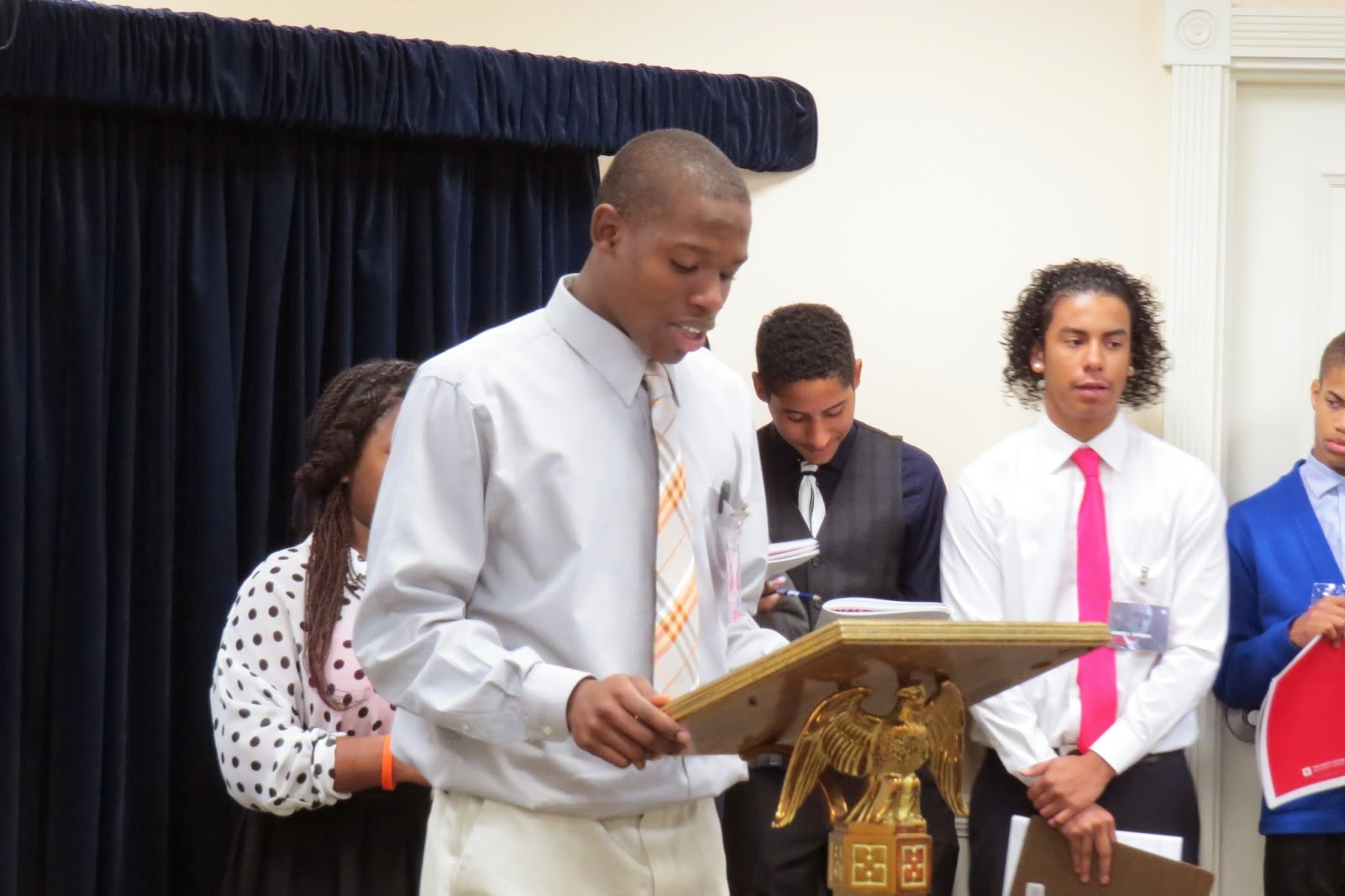I was recently asked to conduct my first Professional Development session at school. A couple hours later, I was asked to conduct my second Professional Development session. When it rains, it pours. Like most in this profession and probably in many others, when I'm sharp I have 1,000 different ideas running through my head all of which I would love to share. If I only had the time...
But the reality is that I don't have the time. And that's an important reality to confront. My wife always tells me that I need to learn how to say 'no' to people, and that is a constant battle for me. I like to help and I like to participate. When I'm asked to take something on, I tend to have a hard time
not thinking about the poor person organizing whatever event this is and how desperate they are for some help. This isn't a bad character trait necessarily - it just gets me in over my head sometimes.
But back to the Professional Development sessions. The first one I was asked to put on was over Twitter and how teachers can use it as individual PD. The session went really well, although only 7 teachers showed up. Hopefully I won 7 converts who will spread the gospel of Twitter far and wide. It's not as useful without me or someone talking you through what you see here, but here is the presentation I made:
When the possibility of putting on a session came up, I got excited. I am not shy about my frustrations with PD the way that it often runs. I know that I am short on time and I know that if I am given contractual hours to work and plan, I will work and plan. I also know that this same statement is not true for all teachers. Administrators have a hell of a job.
In my mind, if I am going to be required to take part in PD, it better be well-planned, thoroughly thought-out and relevant at a minimum to quality pedagogy, if not my specific classroom. That's why I love PD where teachers can choose between several sessions - what we were able to do last week at Center. To be able to help with providing solid PD was exciting for me.
I jumped all in to both presentations and I think that they were both received really well. Several teachers stayed after each session and talked about application possibilities for what we had just discussed. There was good back-and-forth between me and the teachers who attended the sessions. I've exchanged several e-mails on each topic. We even had a great turnout at the Twitter chat for our district that occurred the week after the Twitter session.
However, while I was working on the materials for these sessions in the run-up, my wife's voice kept popping up in my head. It really bothered me.* Why was I spending time out of my busy day, knowing that I had planning and grading and reading to complete, to prepare a session on two topics I already knew really well?
*What my wife's voice was saying, not the voice itself.
Without this voice, I would literally work myself to physical sickness. This is one of the great gifts that my wife has given to me - the strength and wisdom to realize that what I give to others is better when I first make sure that I am strong myself. That gift, counter-intuitive as it may seem, led me eventually to keeping a blog.
***
Blogging is the best personal growth activity in which I have participated in my life. It is free. It takes about 90 minutes each week. It connects me with others at my school and around the world.
I keep this blog because it keeps me honest with myself, my friends and my family. When I plan a lesson or an activity, I often think about what that activity will look like when I blog about it later. When I sit down to write on Sunday night, will I look back on the week before and realize I was a boring teacher that week? Or will I be able to think back and find a few light-bulb moments that I can reflect on and celebrate?
It is important as a teacher to remember that not every single moment of class will be brilliant with wonderful background music as the kids smile and learn. There's a reason movies have a montage in the middle - no one wants to see the grind that exists before the moment. Nonetheless, the grind is there and without it, the moment is not possible.
Before I blogged, I would often put my head down and just work. And work. And work some more. Before I knew it, we had been grinding for a month with no moments to celebrate because I never stopped to look big picture.* Blogging is my dedicated time every single week to stop and think big picture.
*Here's a story. My first year - no, my first month - of teaching, I was so determined to will my way through my lack of knowledge and experience that I got in the zone. I worked before, during and after school every single day and for hours on the weekend. I had no idea what I was doing, but I was going to do whatever it was I was doing with a zeal that would make someone who is really zealous very jealous. (I love rhymes) Unfortunately, I forgot to stop and look up. Six weeks went by at the beginning of the year and I realized that I had not given a single assessment of learning. No quizzes. No tests. Nothing. If you're a reader of this blog, then you are aware of how terrible I was my first year. Those kids are freshmen in college now. Say a prayer to whatever god you pray to for them, especially if they are taking a science class.
So here's my suggestion if you're a teacher or even if you're not. Keep a blog (or a journal if you're old-school). Start out once a month or once every two weeks. But put it in your calendar and stick to it. Make yourself write during a certain time each week. Mine is either Sunday afternoon or Wednesday during my plan period. Find your time each week, or every two weeks, or every month, and dedicate that time to making yourself stronger and better. Whoever it is you give to, whether it is your own kids, a client, students or other adults - they will benefit when you stop briefly to make yourself stronger and better.
***
Love it? Hate it? Leave your thoughts below and let's talk about it!
Get in touch!














.JPG)